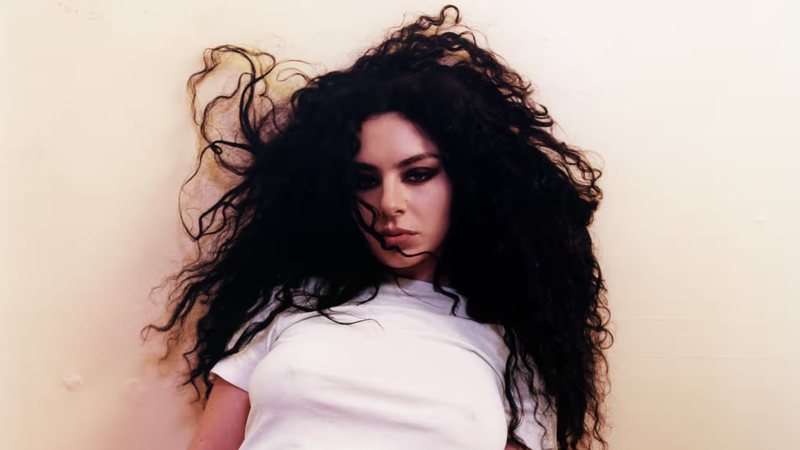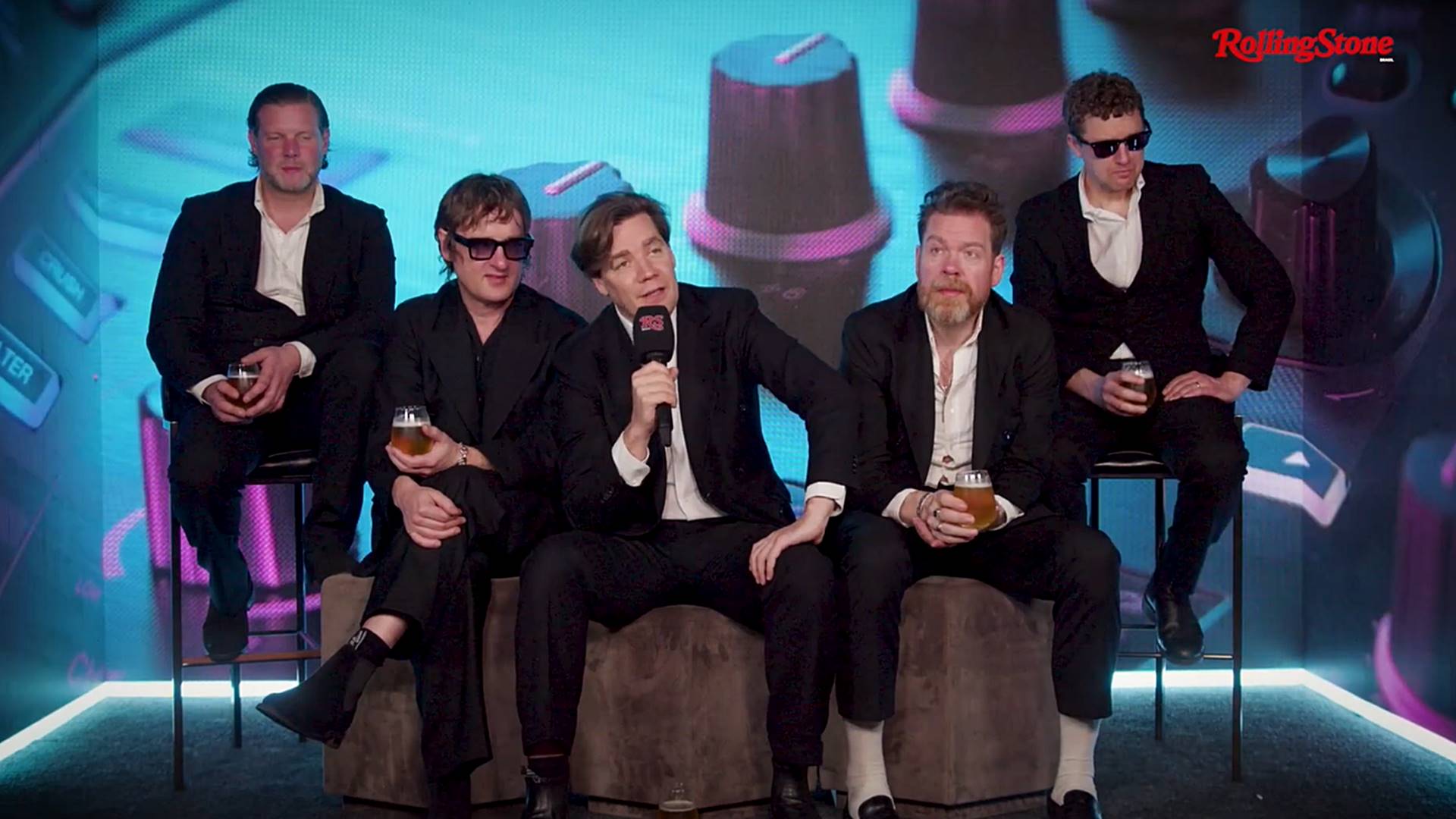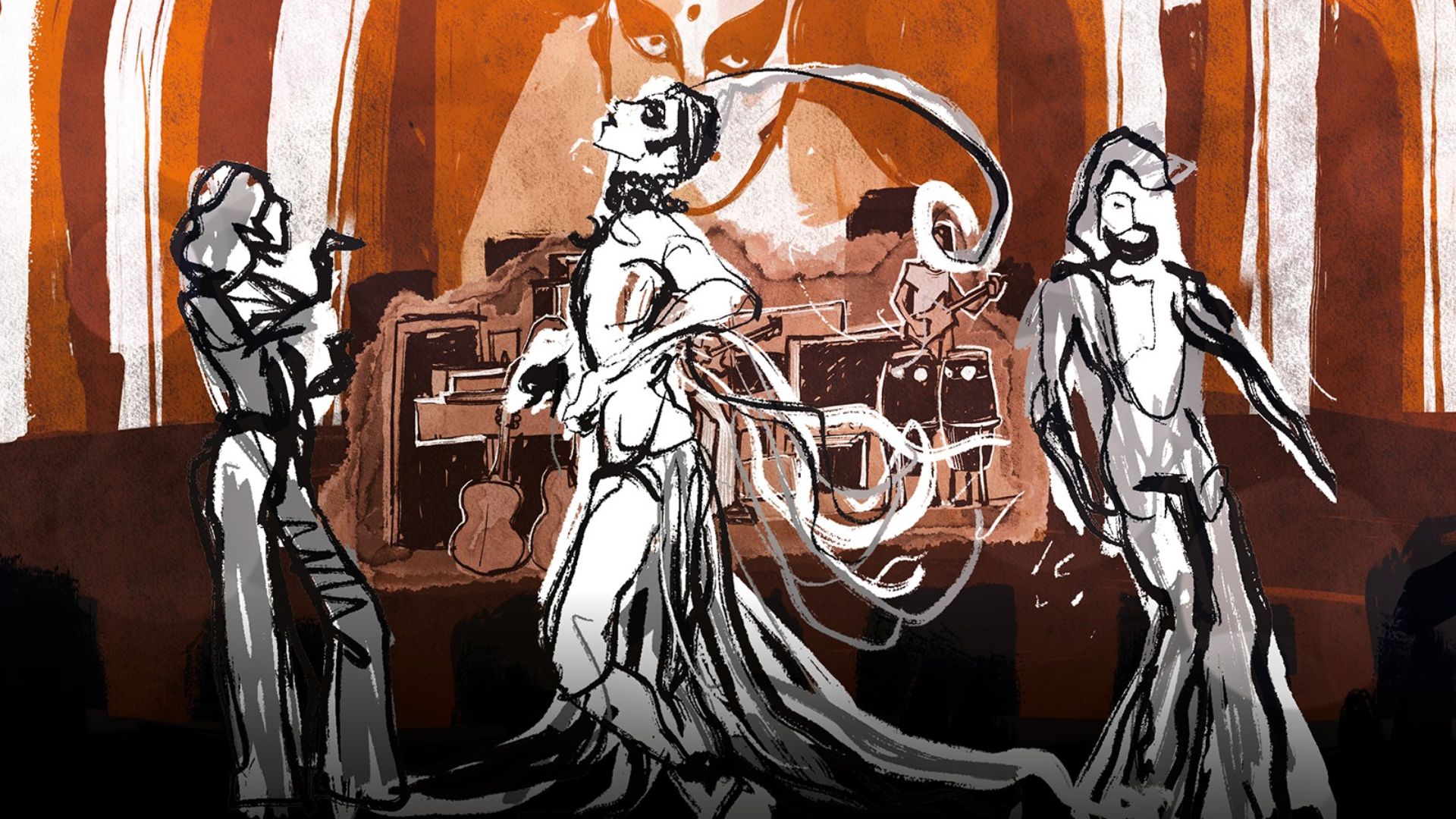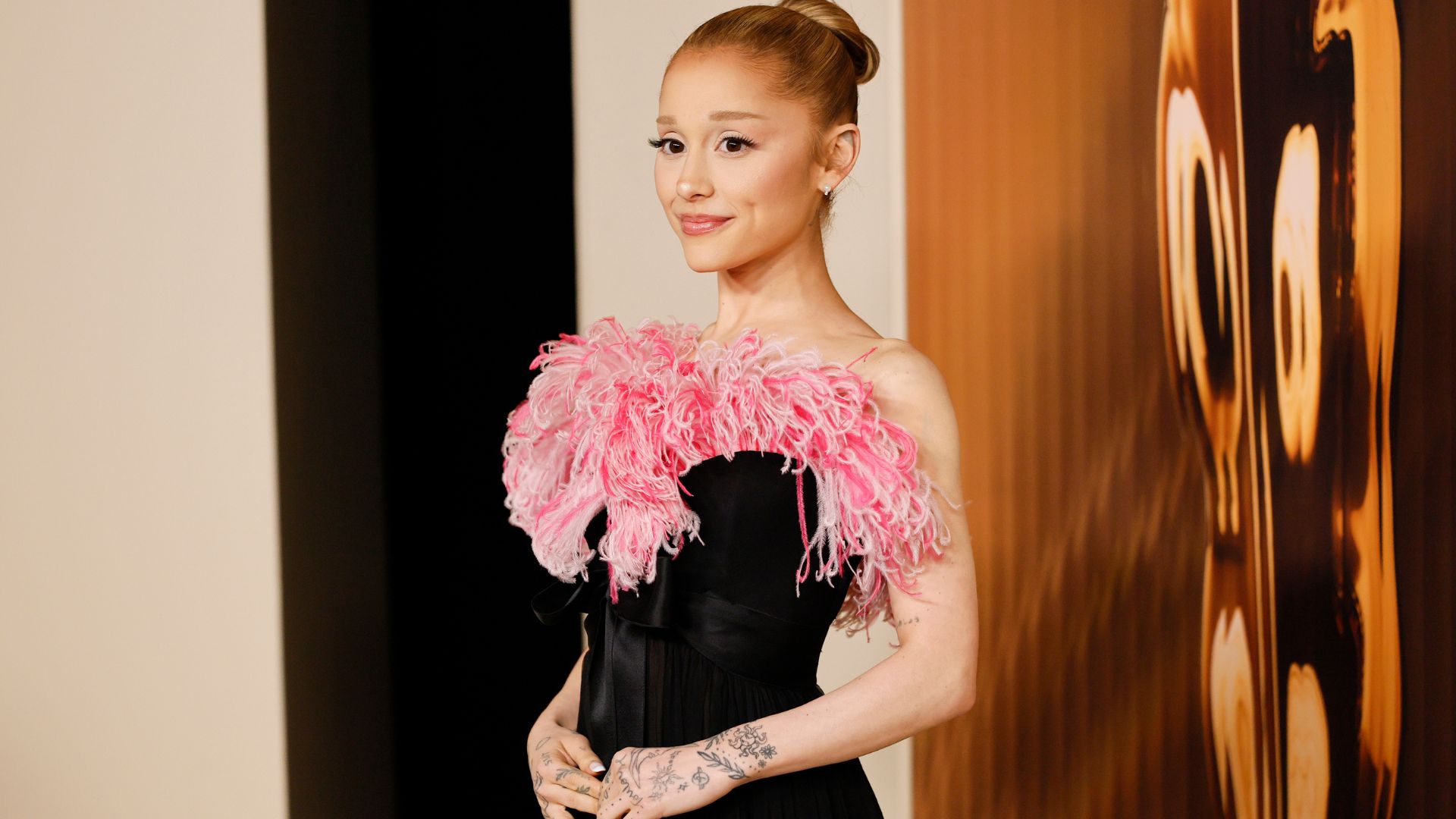Between transgression and vulnerability, Charli XCX releases her sixth studio album and dominates the internet
Endless packs of cigarettes, ketamine, strobelights, text messages, fame, self-esteem, social networks and after parties: it is in a sweaty club that the sixth studio album by Charli XCX, the British woman who “broke the internet” with release of “BRAT”. Produced by her together with AG Cook, Easyfun, Cirkut, El Guincho, the album works as a return to the illegal raves where Charli started performing when she was still fourteen. Evoking an alter-ego called Party Girl, across fifteen songs, “BRAT” offers vulnerable and confrontational lyrics without worrying about the moral ruler that has plagued contemporary popular culture – if the rule is that pop stars are highly clean and relatable, Charli sings freely about her relationship with drugs, obsession with recognition, nihilism and desires of a “niche POP artist” as she has been called by global critics. She occupies a strange position in the music industry: for the mainstream, Charli has an overly aggressive and histrionic aesthetic, for the underground, her universe is read as excessively ultra-mediatic, however, the truth is that through “BRAT”, the artist cements his status as a cult icon once and for all.
It is not possible to understand the importance of Charli’s work without first going through the scene in which she has been involved in the last decade. It was through PC Music, a label and kind of “artistic collective” created by AG Cook, where Charli found partners who could develop the sound she had in her head. Before that, she had made the somber “True Romance”, a brilliant debut album, and “SUCKER”, a sugary POP album where the record company pressured her for highly palatable radio hits. The “SUCKER” experience marked Charli as something she didn’t want to do in her career. In “Vroom Vroom”, an EP released in 2016, Charli found the experimental and avant-garde POP formula that would boost her career. Produced alongside SOPHIE (avant-garde Scottish producer who recently died, to whom Charli pays tribute in “So I”), the songs on “Vroom Vroom” have metallic textures, agile and noisy beats and ironic lyrics. Through PC Music, contemporary POP music has been turned upside down by becoming more experimental and free.
Inspired by eurodance, with nostalgic references and internet culture, PC Music is an aggressive version of the music of the present, challenging dualities and common senses such as the myth of man against the machine, or acoustic and electronic music, with its artists marked by ambitious sound engineering, stylized vocals, and strong use of auto-tune – something that Charli uses and abuses, creating her own signature. You can see the influence of PC Music and its hyperpop everywhere – it’s no wonder that Billie Eilish or Olivia Rodrigo are able to penetrate the radio with their current sounds or that artists like Camila Cabello are emulating Charli out there – and she knows it . “I’m your favorite reference, baby,” she sings on “Von Dutch,” the first single from “BRAT” that samples Bodyrox’s “Yeah Yeah.”
A prolific songwriter, Charli has songs performed by countless artists: Selena Gomez, Shawn Mendes, Ryn Weaver, Icona POP and others, but now she says she hates the current songwriting processes and camps in the music industry, which seem more like therapy sessions. Instead, in “BRAT”, Charli chooses to compose extremely direct songs, as if they were text messages sent to her friends or a confidant, getting viscerally close to her listener. In “I think about it all the time”, she longs for the possibility of becoming a mother after visiting a couple of friends who were happy for their newborn baby. In “I Might Say Something Stupid”, Charli is confessional, “I don’t feel special, I rip my socks off on the chair, I think I’m a mess, but I hide it.”
A disciple of Duchamp and Andy Warhol, the cover of “BRAT” became a meme and divided opinions when released. Charli decided to remain philosophical about her minimalist choice: “I think the constant demand for access to the bodies and faces of the women on our album cover is misogynistic and annoying. Why am I not on the cover? What does this cover mean? I I want to tease people and I’m not interested in being nice all the time,” she challenges. The cover of “BRAT” worked like a Trojan horse and went viral all over the internet. Now the shade of green used in it is recognized as “brat green”. In just a few days, thousands of items such as bags, t-shirts, caps have the print and color of “BRAT”.
At a time where feminism has been increasingly commodified, the artist chooses to play another type of game. On the album, she deals with the topic explicitly in “Girl, so confusing”, where she supposedly comments on how she feels about New Zealander Lorde, with whom she shared the spotlight at the beginning of her career: “We have surpassed the point where the media always pits women against each other. In the mid-2000s, what literally sold magazines and newspapers were things like: ‘Britney versus Christina’, ‘Paris versus Lindsay’. In the music industry, the idea has been distilled that if you support women and like other women, then you are a good feminist. The inverse of this is: if you don’t like every other woman who exists and breathes on this Earth, then you are a terrible feminist. If you’re not a girl’s girl, then you’re a bad woman,” Charli told The Guardian, advocating for greater complexity in both feminist agendas and the affects that make us fail and ultimately make us human.
Charli current days. In “BRAT”, she laughs at the effect of tiktok on music, where one trend is replaced by another in a matter of seconds: so how can you create lasting works in such an ephemeral universe? Charli returns to electronic music classics and creates her most cohesive album to date.
For the music video for “360”, the album’s second single, she brought together the “most talked about girls” on the internet: Julia Fox, Rachel Sennott, Emma Chamberlain, Gabbriette, Chloe Cherry, Isamaya Ffrench, Salem Mitchell, Hari Nef, Richie Shazam, among others. The most iconic appearance, however, is Chloë Sevigny, an actress who has cult status after starring in films such as “GUMMO” and “KIDS”. Charli knows what works and what doesn’t in internet culture: “Nowadays, record labels are really desperate for their artists to be “liked” (like culture), and the currency of kindness is really important in internet culture. record sales, otherwise you will be bad, problematic and wrong”, she says. “You can’t separate yourself from your fans. Unless it’s extremely drastic and distant – and then it almost becomes the culture itself,” Charli muses.
“BRAT” is also an album that focuses on crises, both the personal ones of the artist herself, who talks about her millennial dramas and the arrival of her thirties, as well as the crisis of POP culture itself, where artists who previously seemed deified on Olympus – from Britney Spears to George Michael, Prince and Madonna, they are now easily confused and hybridized in the influence market culture. The album then resonates with the economic crisis of POP music, and unlike her market competitors, Charli allows herself to regret and show resentment at the fact that she did not become as rich and famous as the superstar model she grew up watching in the golden age. from MTV.
Like a contemporary Michael Alig, she approaches her fanbase by communicating directly with them — sometimes responding to sharp criticism on her Instagram or Twitter account, then inviting fans to be “consultants” on songs that should be released or not. , and other times hosting parties where fans can dance to her clubs and offer her cigarettes in person. Charli creates a sense that she could be that girl you meet in the bathroom at a party, who she talks to for five minutes and has life-changing epiphanies. The “PARTY GIRL” experience, a kind of happening where she invites friends and producers to nightclubs, arrives in São Paulo at ZIG Club on June 22nd, after having visited Barcelona, London, New York, Chicago, Los Angeles and Mexico.
Passionate, inventive, visceral and provocative, the most conservative may even turn their noses up at Charli, but with “BRAT” she proves that she is here to stay and change pop culture forever.
Ali Prando (@aliprando.exe) is a philosopher, curator and artist. He created the Transforma Música Festival, discussing queer representations in the Brazilian audiovisual market. He released the album ‘GLITCH’ and performed ‘ALGORITHMOS’, an electronic opera about an AI that questions its existence when interacting with humans. His philosophical research was taken to festivals and important academic and cultural institutions in Brazil, addressing the body, sexuality and pop culture.
Source: Rollingstone
Earl Johnson is a music writer at Gossipify, known for his in-depth analysis and unique perspective on the industry. A graduate of USC with a degree in Music, he brings years of experience and passion to his writing. He covers the latest releases and trends, always on the lookout for the next big thing in music.









